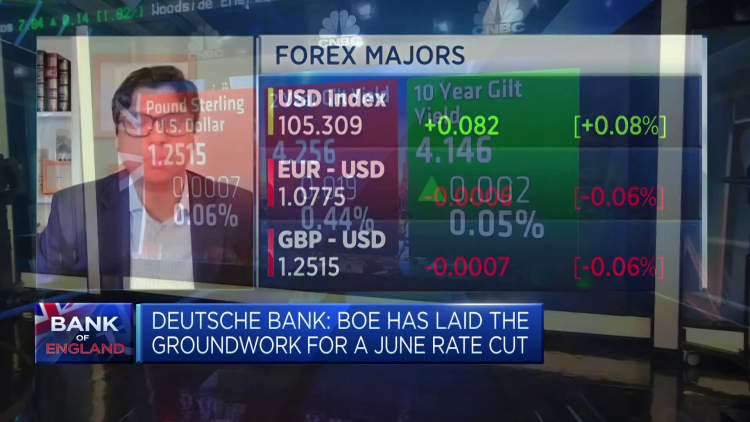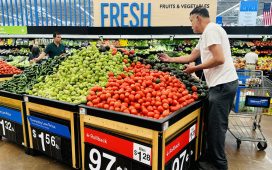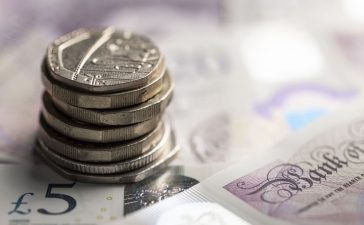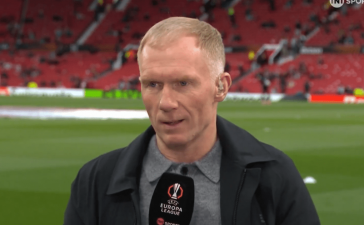A shopper selects fresh produce from a market stall in the Kingston district of London, UK, on Monday, May 20, 2024.
Bloomberg | Bloomberg | Getty Images
LONDON — U.K. inflation could be about to hit a major milestone, with some forecasting that a sharp fall in the April print will take the headline rate below the Bank of England’s 2% target.
That would represent a plunge from the current level of 3.2% and could “make or break” a June interest rate cut, economists say.
The decline will largely be driven by the energy market, after the regulator-set cap on household electricity and gas bills came down by 12% at the start of April.
A reading below 2% on Wednesday would be the lowest headline inflation rate since April 2021, and a cooling from the peak of 11.1% hit in October 2022 — when U.K. price rises were among the most severe of all developed economies.
The country has been hit by a range of inflationary pressures, including a persistently tight labor market, weakness in the currency increasing the cost of imports, and steeper rises in gas bills than were seen elsewhere.
‘Momentous’
Ashley Webb, U.K. economist at Capital Economics, said that if the headline rate does fall below 2% in April, as he expects, it would be “momentous.”
“This will be crucial in determining whether the first interest rate cut from 5.25% will happen in June (as we expect) or in August. What’s more important is what happens next. We think inflation will fall further, perhaps even to 1.0% later this year,” Webb said in a Friday note.
A Reuters poll of economists puts the headline estimate slightly higher, at 2.1%.
The Bank of England held interest rates steady at its May meeting, as policymakers sent out signals they were preparing for a rate cut in the summer but declined to zero in on June — as those at the European Central Bank have done.
BOE Governor Andrew Bailey said the latest figures were “encouraging,” but that releases ahead of its June 20 meeting, including two consumer price index prints and two sets of wage growth data, would be crucial.

BOE Deputy Governor Ben Broadbent said in a Monday speech that if inflation continues to move in line with forecasts, it is “possible Bank Rate could be cut some time over the summer.”
As of Tuesday, money market pricing continued to indicate only around a 50% probability of a June cut, rising to 73% in August.
Market overreaction?
Economists at ING see inflation coming in “within a whisker” of 2% in April, but dipping below it in May and staying there for most of the remainder of the year. That is well below the BOE’s own forecast for the rate to be closer to 3% at the end of the year.
“If we’re right, then that should be a recipe for several rate cuts this year. We expect at least three, which is slightly more than markets are pricing. But in the very short term, there’s still some uncertainty over services inflation,” James Smith, ING’s developed markets economist, said in a note Monday.
The most recent inflation print for March showed the core figure, which excludes energy, food, alcohol and tobacco, at 4.2%; and services inflation, a key metric for the BOE, at 6%.
Services inflation is forecast at 5.5% for April.
There is a chance the market will “overreact” to a low headline print on Wednesday, Jane Foley, head of FX strategy at Rabobank, told CNBC by email.
“Both the core and the services inflation number could have greater relevance for the timing of the first rate cut of the cycle. On the assumption that services inflation will still be elevated, the Bank could play a cautious hand and still delay a rate cut until August,” Foley said.









